
Fr. Diego Ibarra, IVE, rector of the Houses of Formation, welcomes Archbishop Gilbert Garcera
Blessed Pope Paul VI, in his motu proprio Ministeria Quedam established that “candidates for ordination as deacons and priests are to receive the ministries of reader and acolyte and are to exercise them for a suitable time, in order to be better disposed for the future service of the word and of the altar”.
Towards this end, Archbishop Gilbert Garcera of Lipa visited our House of Formation on Sunday, August 20th to celebrate the Holy Mass and to confer the ministry of reader to one seminarian and the minister of acolyte to 5 others as steps in the preparation for ordination to the priesthood. It was his first visit to our Houses of Formation.
The Reader (known before as Lector), has the proper function of “reading the word of God in the liturgical assembly. Accordingly, he is to proclaim the readings from sacred Scripture, except for the gospel in the Mass and other sacred celebrations; he is to recite the psalm between the readings when there is no psalmist; he is to present the intentions for the general intercessions in the absence of a deacon or cantor; he is to direct the singing and the participation by the faithful; he is to instruct the faithful for the worthy reception of the sacraments. He may also, insofar as may be necessary, take care of preparing other faithful who are appointed on a temporary basis to read the Scriptures in liturgical celebrations. That he may more fittingly and perfectly fulfill these functions, he is to meditate assiduously on sacred Scripture.”
To perform the important duties assigned to him more fittingly, “the reader is to make every effort and employ suitable means to acquire that increasingly warm and living love and knowledge of Scripture that will make him a more perfect disciple of the Lord.”
In a similar manner, the motu proprio lists the duties of the acolyte: “The acolyte is appointed in order to aid the deacon and to minister to the priest. It is his duty therefore to attend to the service of the altar and to assist the deacon and the priest in liturgical celebrations, especially in the celebration of Mass; he is also to distribute communion as a special minister when the ministers spoken of in the Codex Iuris Canonici can. 845 are not available or are prevented by ill health, age, or another pastoral ministry from performing this function, or when the number of communicants is so great that the celebration of Mass would be unduly prolonged. In the same extraordinary circumstances an acolyte may be entrusted with publicly exposing the blessed sacrament for adoration by the faithful and afterward replacing it, but not with blessing the people. He may also, to the extent needed, take care of instructing other faithful who on a temporary basis are appointed to assist the priest or deacon in liturgical celebrations by carrying the missal, cross, candles, etc., or by performing other such duties. He will perform these functions more worthily if he participates in the holy eucharist with increasingly fervent devotion, receives nourishment from it, and deepens his knowledge about it.”
Conferral of the Ministry of the Reader and Acolyte
The obligations tasked to the acolyte are also enumerated: “As one set aside in a special way for the service of the altar, the acolyte should learn all matters concerning public divine worship and strive to grasp their inner spiritual meaning: in that way he will be able each day to offer himself entirely to God, be an example to all by his gravity and reverence in church, and have a sincere love for the Mystical Body of Christ, the people of God, especially for the weak and the sick.”
With the participation of all the members of the Houses of Formation, members of our Third Order, and visitors and friends including Fr. Darwin de Leon, the Secretary of the Archbishop, members of the Archbishop’s family, including his brother and a visiting priest and deacon of the Archbishop’s former diocese of Daet, the visit culminated with the conferral of the ministries of lector and acolyte and the celebration of the Holy Mass. The Archbishop’s homily was divided into some warm words of appreciation for the invitation and of welcome of the people and an explanation of the Gospel reading of the day in Tagalog for the benefit of our neighbors and visitors attending the Mass and the instruction to those about to receive the conferral of ministries.
The ceremony ended with a simple reception and the Blessing of the Archbishop.



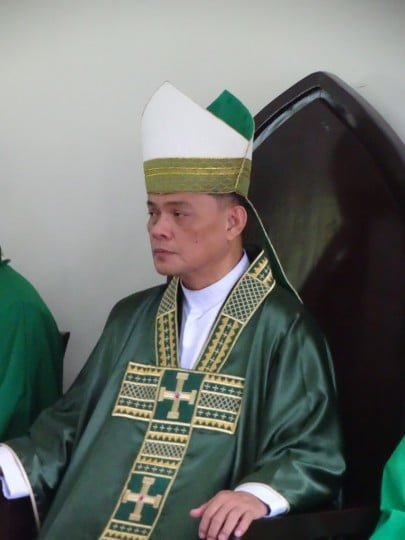
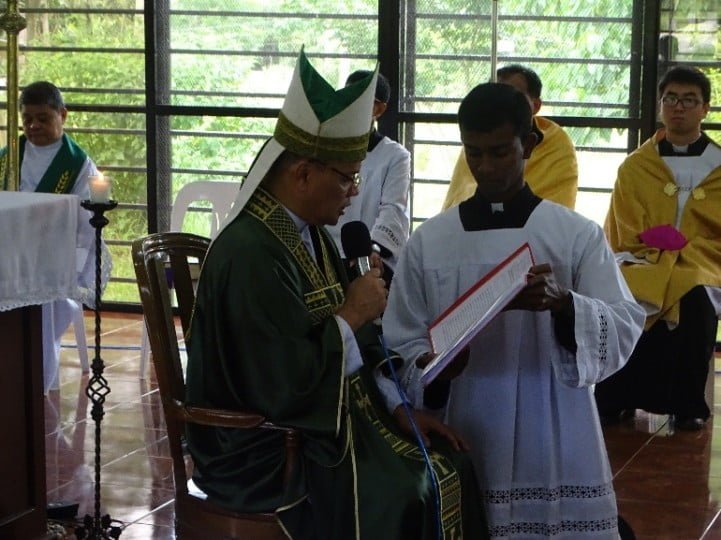

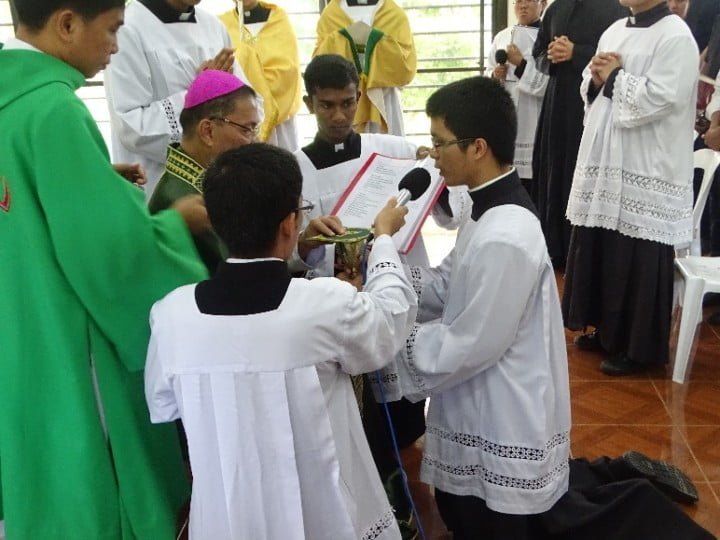
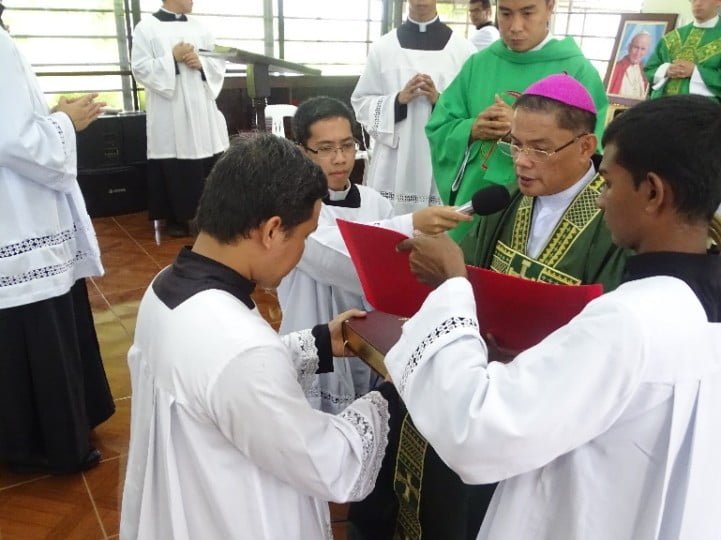


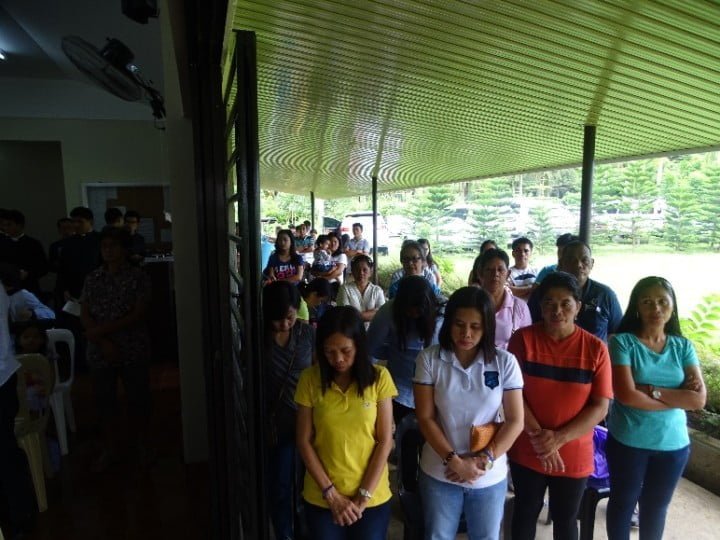


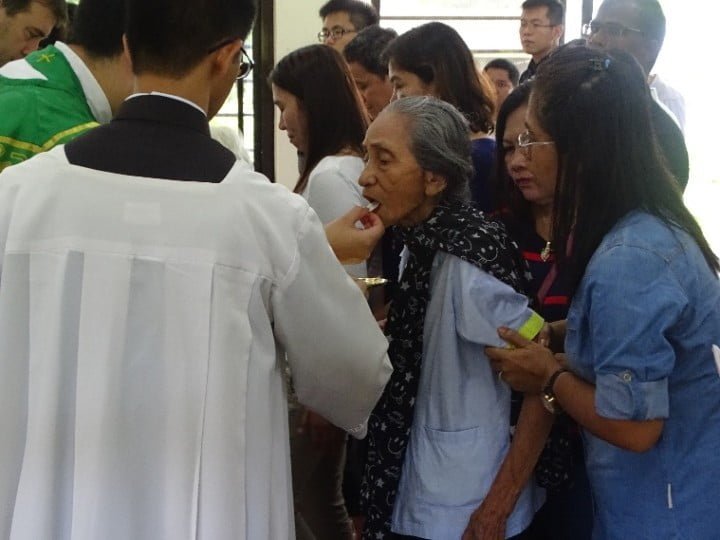
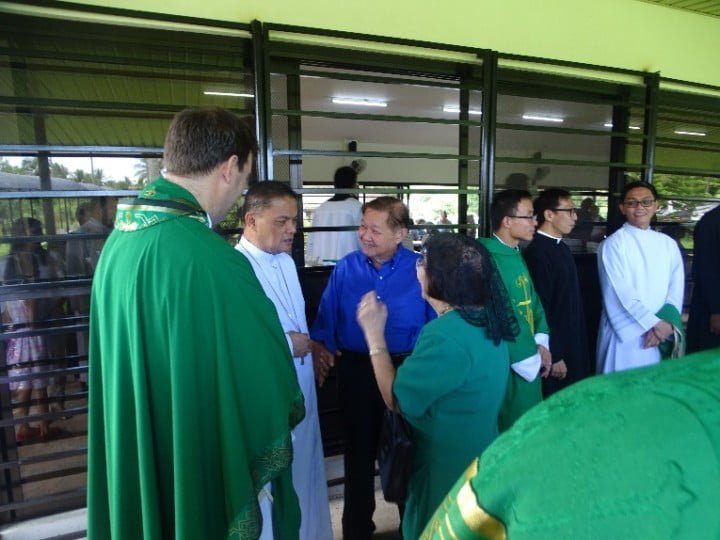
Leave A Comment